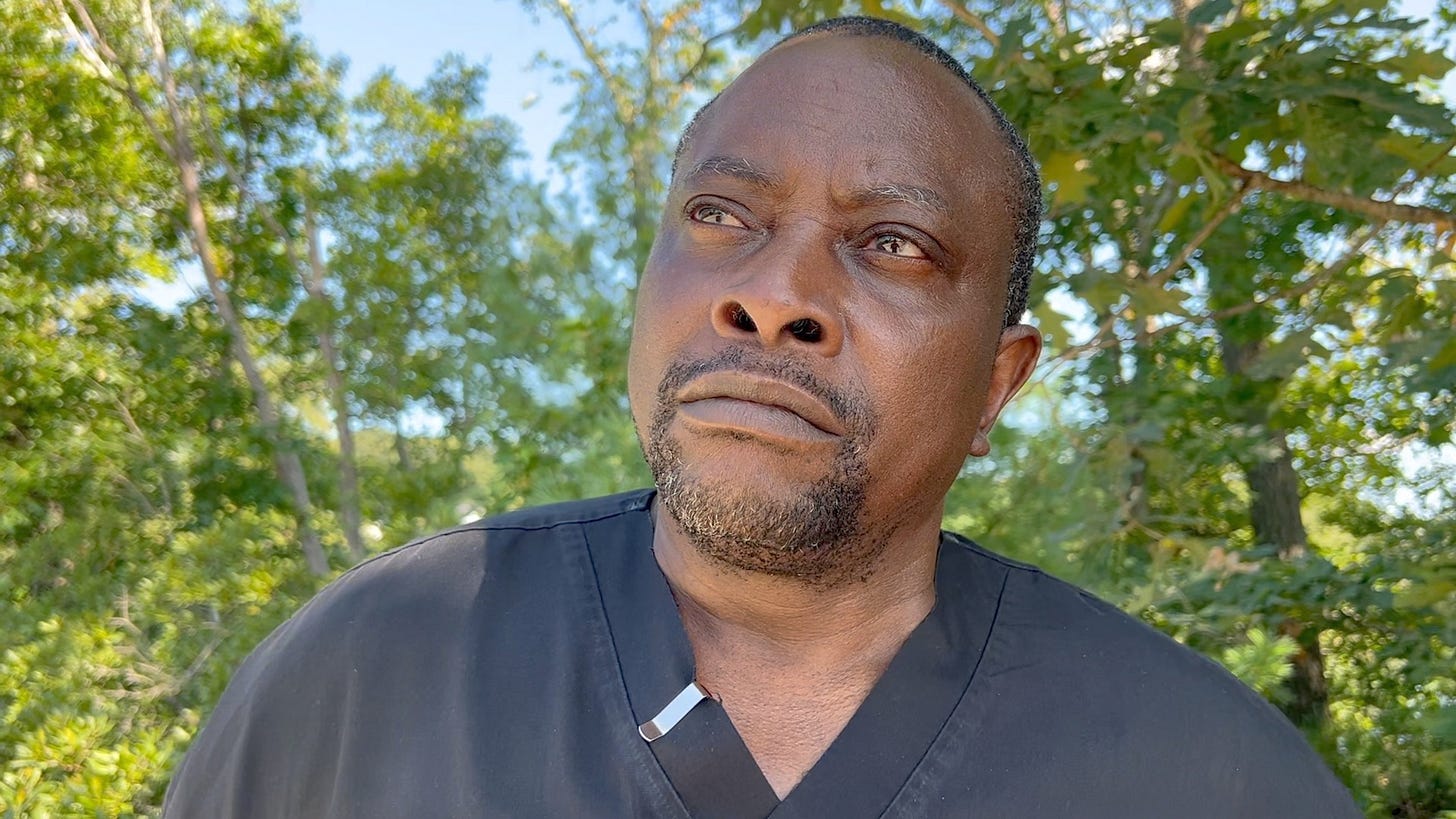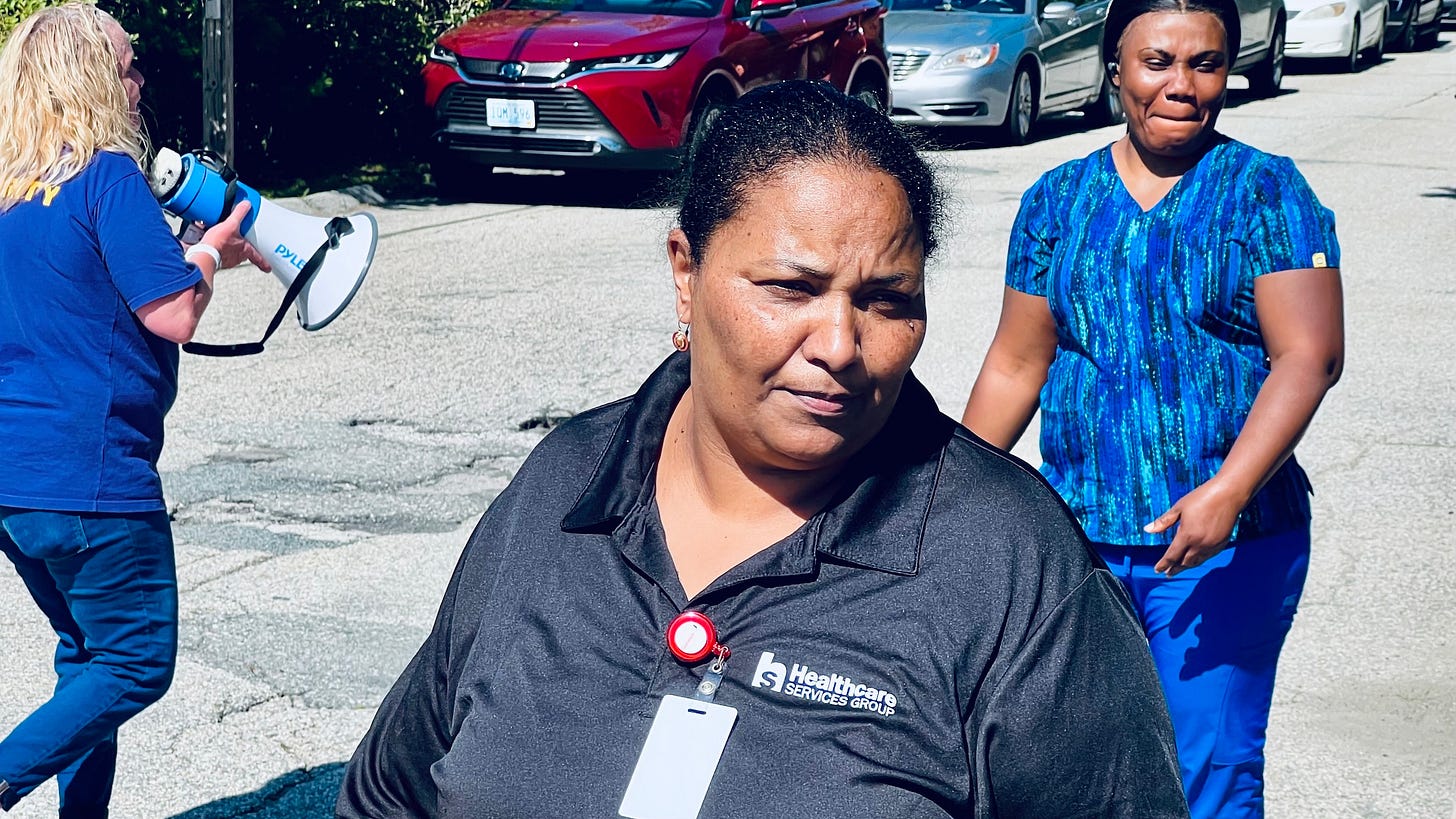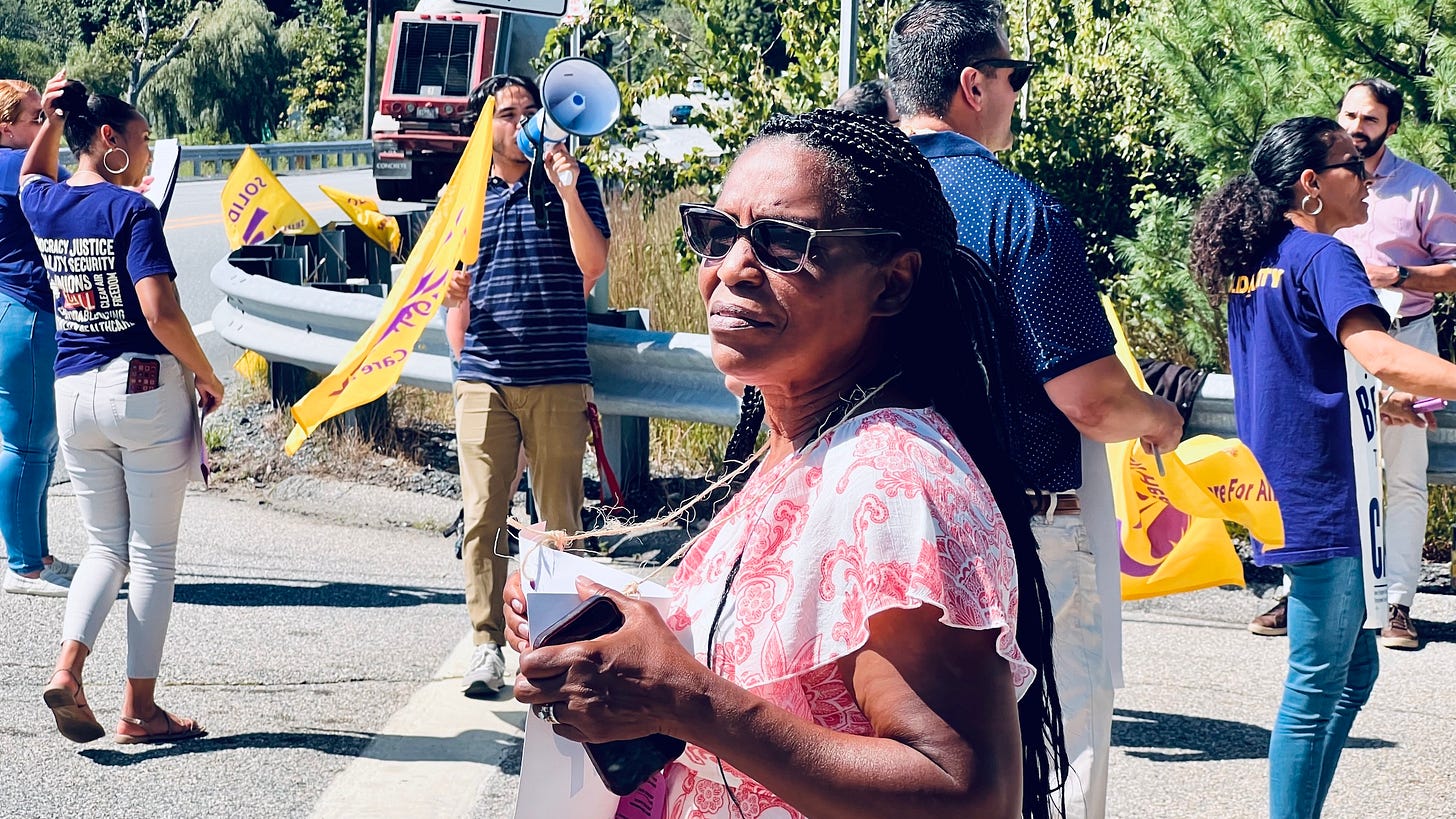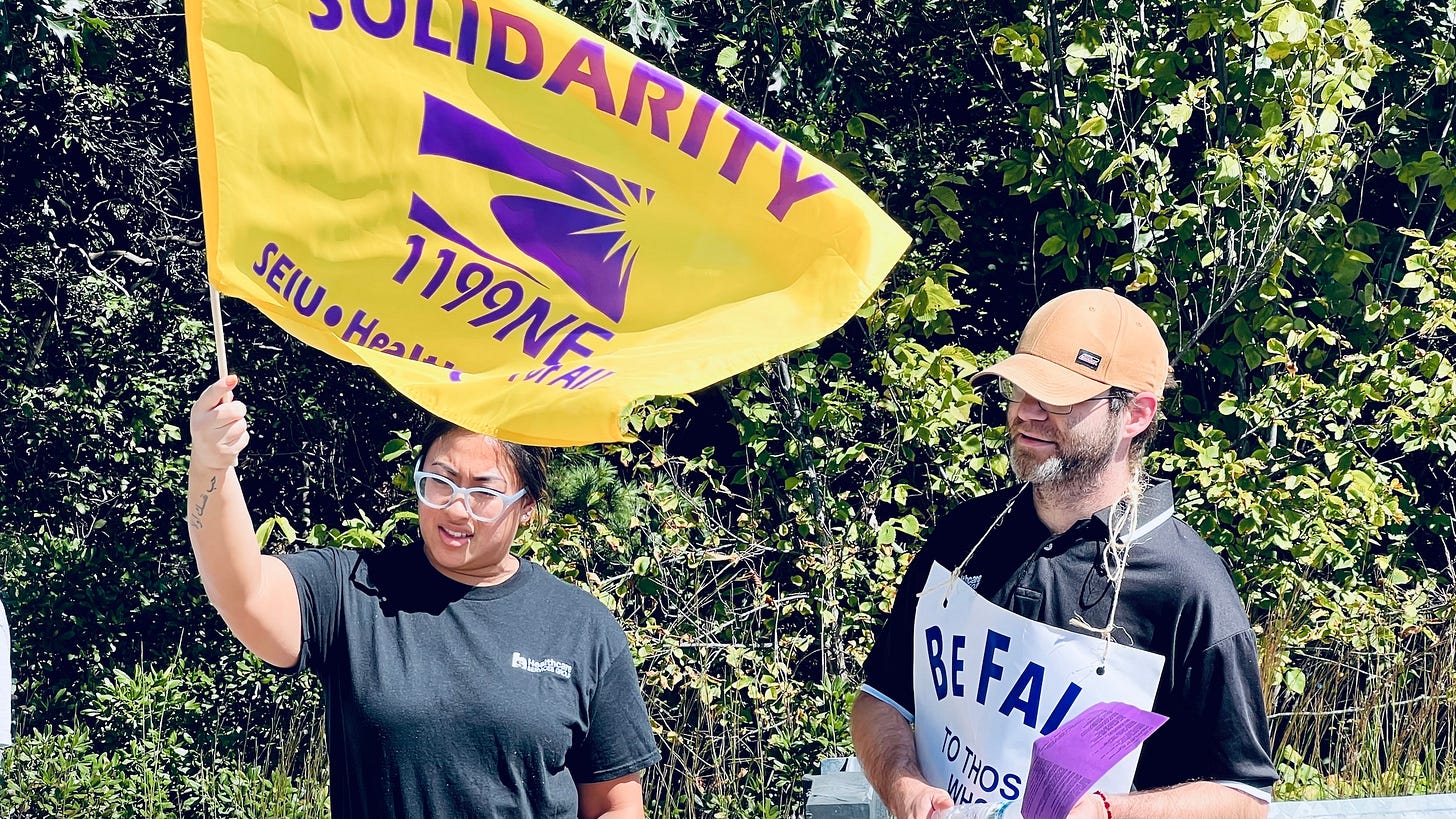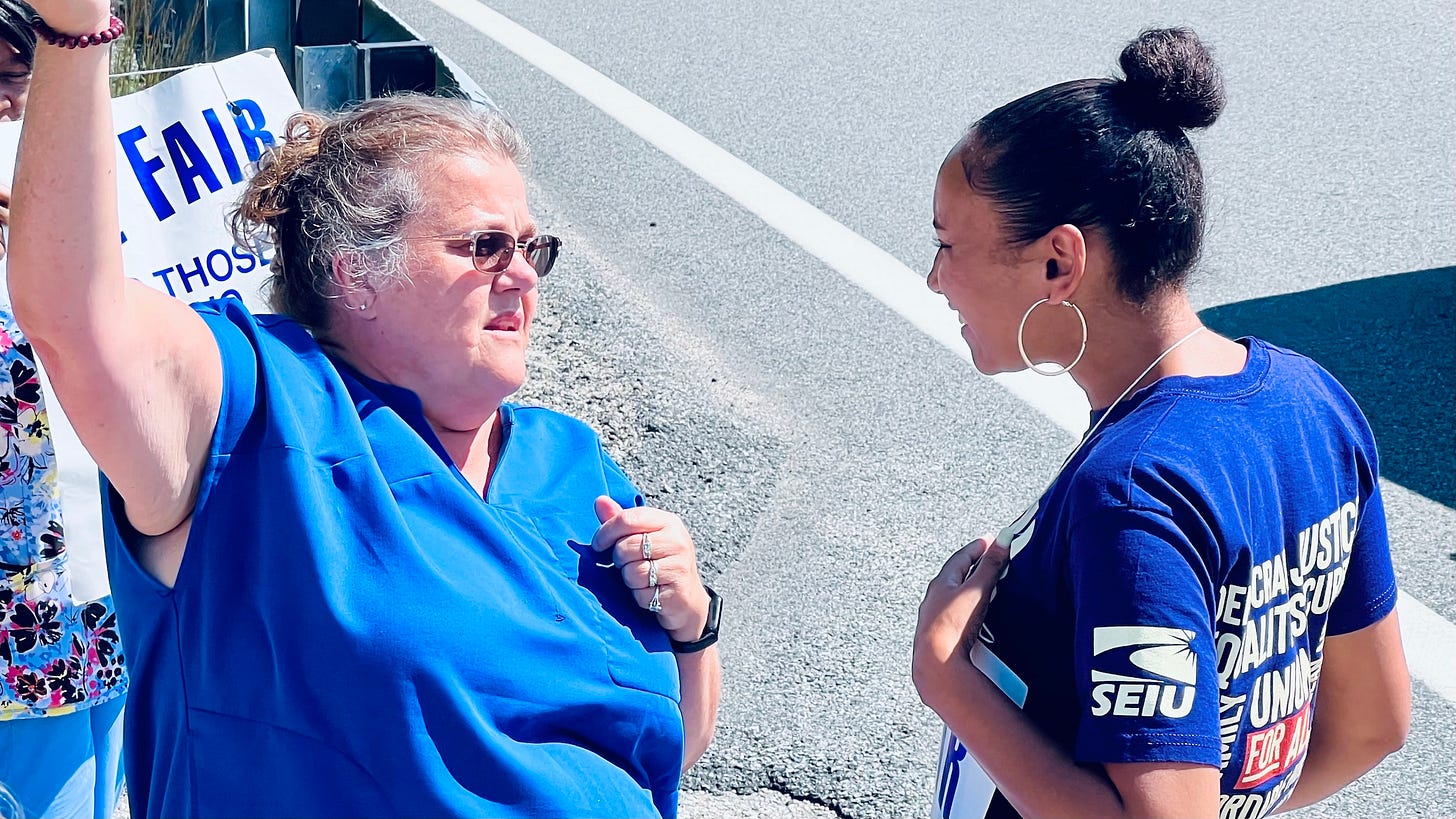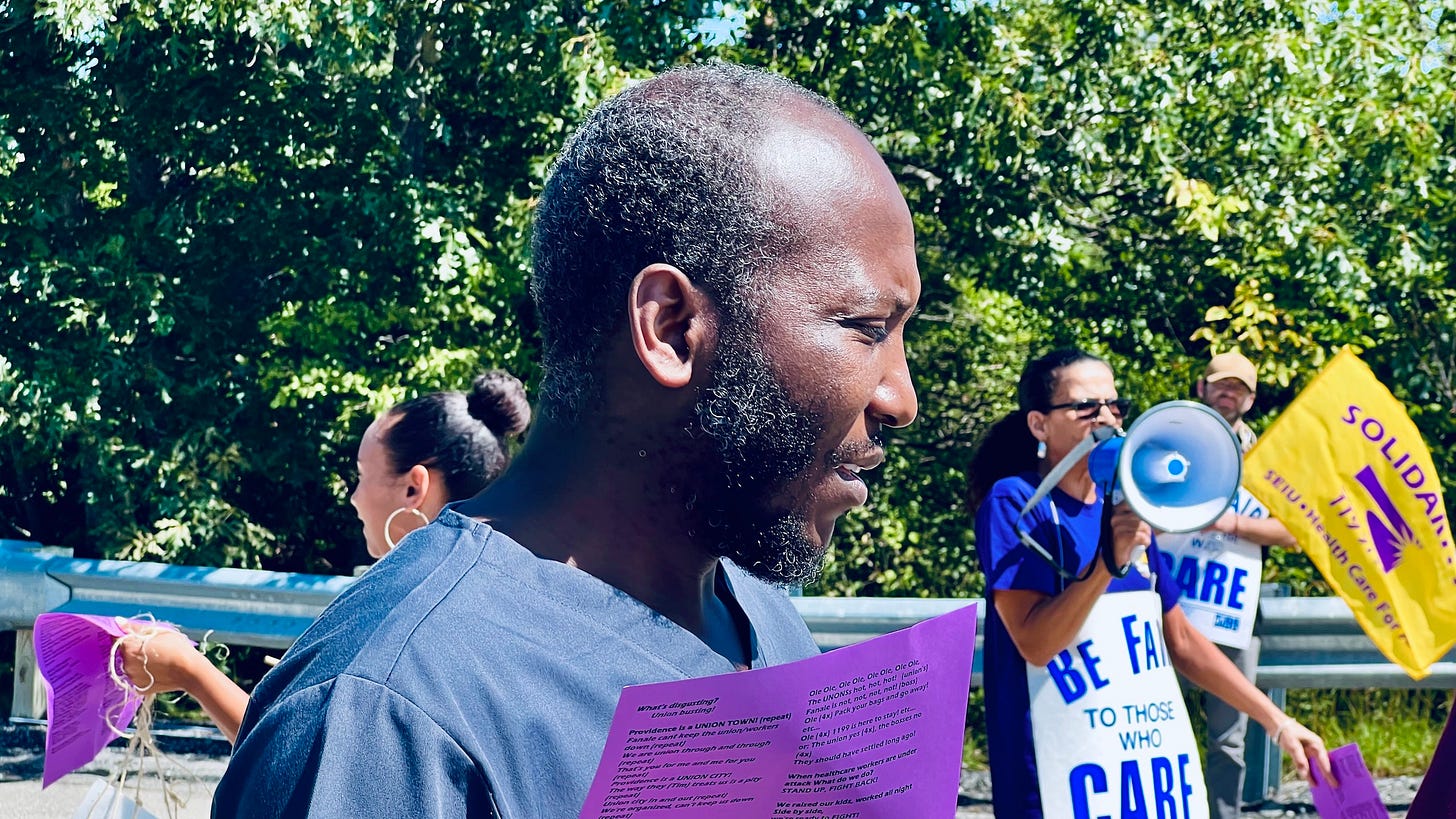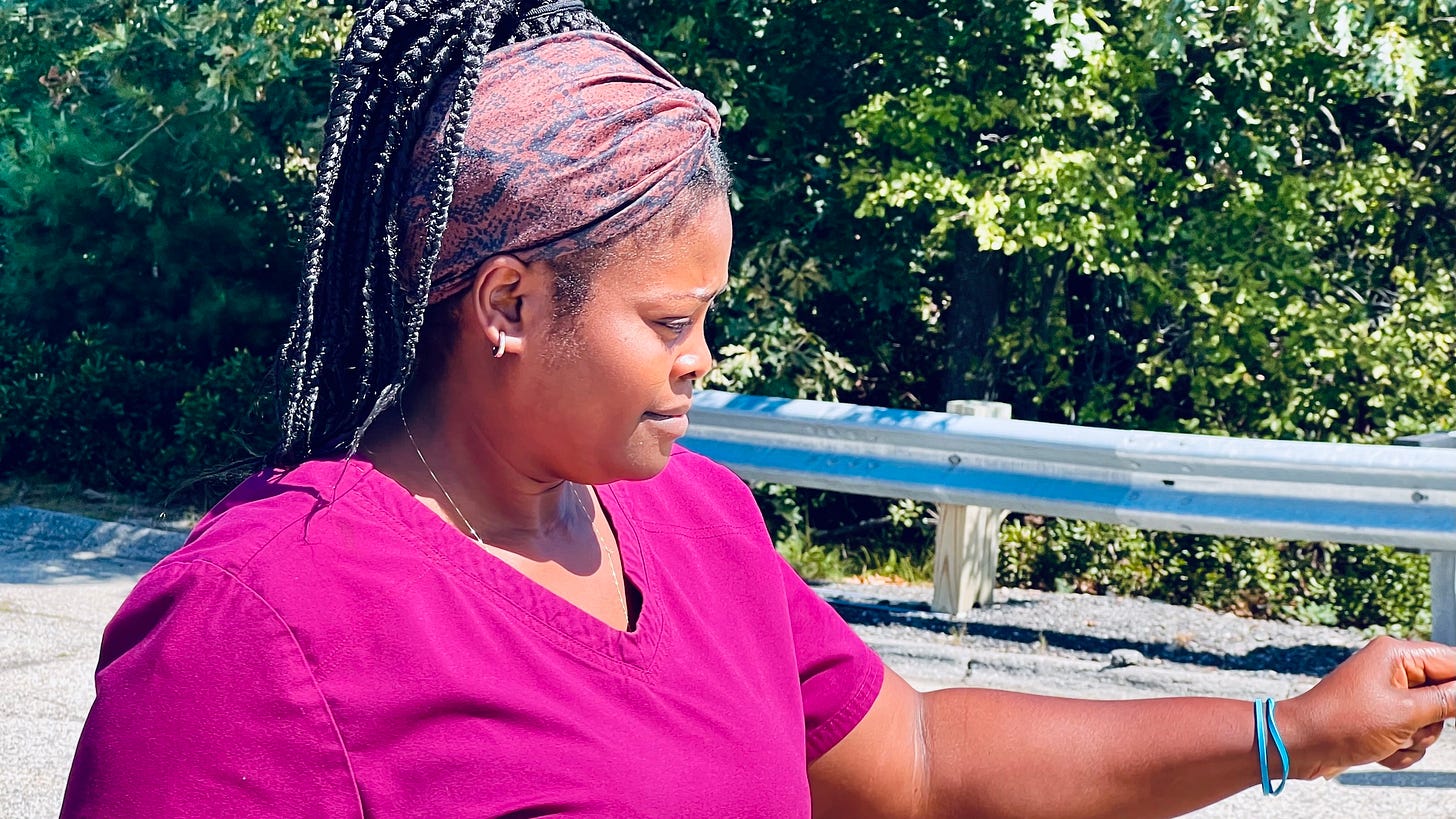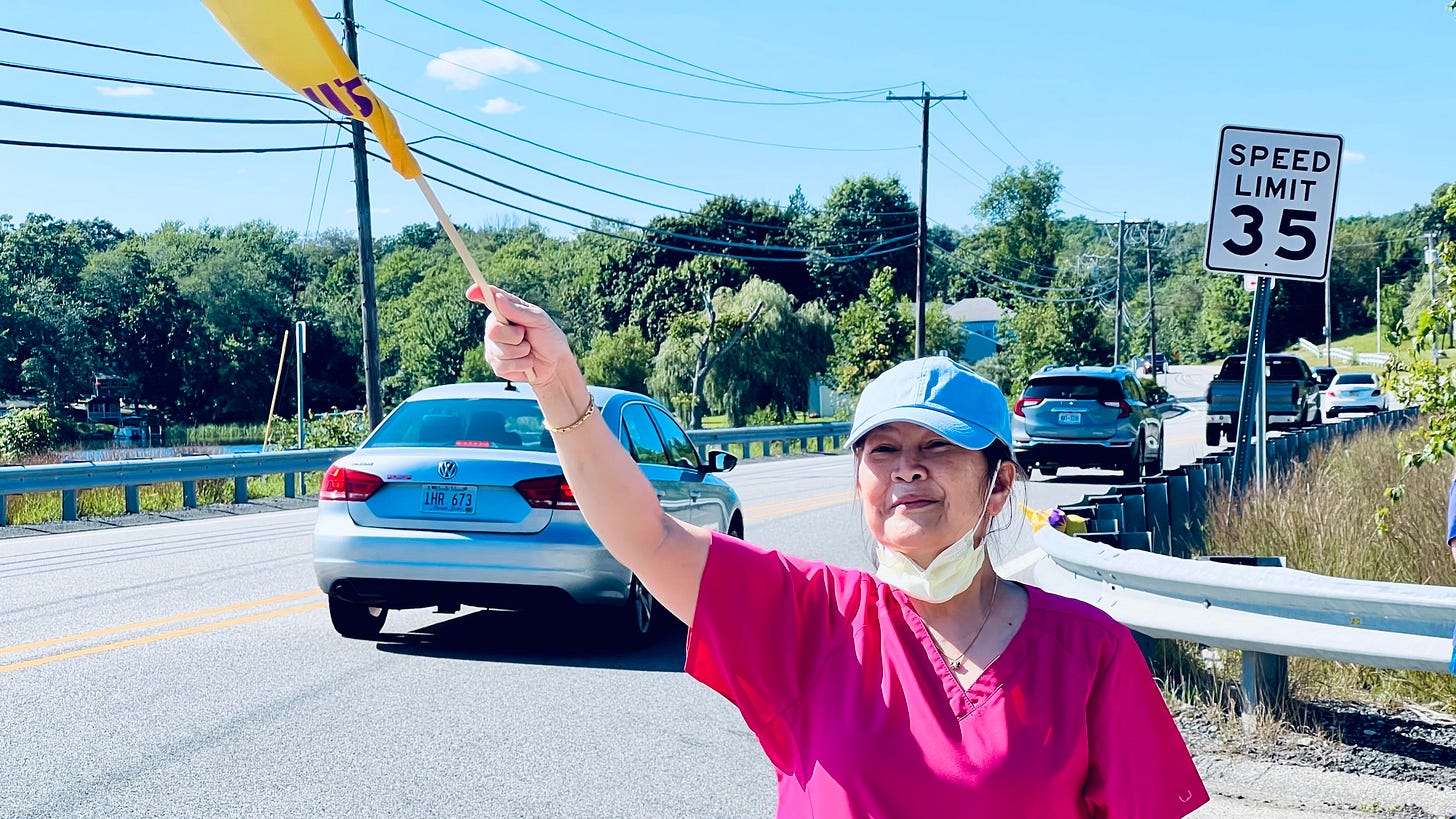Greenville caregivers hit picket line to call on Genesis Healthcare to settle a fair union contract
"We sacrifice. Especially during COVID, we sacrificed a lot. We deserve a pay raise and better benefits."
Caregivers from Greenville Skilled Nursing and Rehabilitation held an informational picket to demand that their employer, Genesis Healthcare, settle a fair contract.
Since May 2023, approximately 110 RNs, LPNs, CNAs, and service and maintenance workers represented by SEIU 1199NE have been working under an expired union contract. Over the last three months, caregivers have held four contract negotiation sessions with Genesis Healthcare, with insufficient progress made. Genesis Healthcare has failed to offer caregivers an economic proposal in negotiations, and they've canceled the last two negotiation sessions while failing to provide options to reschedule.
"Staffing is not great," said David Hoarde, a CNA at Greenville for over six years who has been trying to negotiate with the company. "We're making low wages. The benefits are not that great. Upper management is refusing to meet with us to discuss a new contract. We've set up meetings I don't know how many times, and they keep canceling. They keep blowing us off like we don't matter or exist.
"They don't care about us.
"We work hard. We take care of our residents. They all appreciate us and what we do for them. We just want to be paid accordingly and get the better benefits I think we're entitled to.
"We sacrifice. Especially during COVID, we sacrificed a lot. We deserve a pay raise and better benefits."
While Genesis Healthcare nursing home administrators are earning six figures, even the most experienced caregivers earn under $20 an hour, with dietary employees making a mere $15 and CAs making an average of $18.50. Despite the profitability of Genesis Healthcare and the low wages it pays staff, it still received millions in American Rescue Plan Act funding. In addition, over the last three years, the company received COLA increases to Medicaid reimbursement rates as part of the Nursing Home Staffing and Quality Care Act. Rhode Island nursing homes will receive a 6.9% Medicaid increase in October, 80% of which must be allocated to frontline staff. Genesis Healthcare is one of the country's largest nursing home operators.
"The reason why we are here," said Odutona Akingbade, a worker at Greenville Skilled Nursing and Rehabilitation, "is because we need to do the negotiation with the company and two times they just canceled the negotiations. Now they don't want to cooperate with us, whereby we do the job. Now we're working with a contract."
Steve Ahlquist: No contract, short-staffed staffed and you're underpaid.
Odutona Akingbade: Exactly. We're always short [staffed].
Steve Ahlquist: Has the company told you why they're canceling these negotiations?
Odutona Akingbade: They don't tell us anything. They don't tell us why. They don't want to come to the table. I joined the union to make progress.
Steve Ahlquist: So the company is not being honest with you either.
Odutona Akingbade: No. When we need money for the patients, we can go to the state and fight for it. When we get the money, instead of [the company] giving us maybe 80 cents or a dollar, they don't do it. They keep the money in their pocket.
Steve Ahlquist: So when the state increases rates, companies are not passing it on to the workers?
Odutona Akingbade: They don't give us anything yet.
Steve Ahlquist: I've been hearing this a lot.
Odutona Akingbade: The company gets money, but we don't have it.
Steve Ahlquist: You're also asking for insurance?
Odutona Akingbade: The reason some people are here is that our insurance is less than [that received by similar workers] in the state.
For the residents, we are part of the family. So we can't leave them and go to another place. If you leave here and go to another place because of money you're leaving people here.
Before the families that bring our residents here know what is wrong with their loved ones, we are the first to know. We are the ones that are close to the residents.
Steve Ahlquist: So you could say that the company is using your emotional attachment to the residents to keep you in place and at lower wages, knowing that you are hesitant to leave these people in the lurch.
Odutona Akingbade: That's right.
Steve Ahlquist: That's preying on your best intentions and human nature.
Odutona Akingbade: What they are doing to us is not good.
Steve Ahlquist: And you're the people providing the actual care.
Odutona Akingbade: Exactly. And we work short every day. Sometimes we have 12 patients for one person. We have to do everything. We give them showers. We feed a lot of people, it's tough.
If we are not here to do the job, the company makes no money. We are the ones that do the job for them and they don't give a shit about us. They don't care about us.
Steve Ahlquist: I hope the company comes to the table. It's the minimum thing they need to do, and they seem incapable of it.
Odutona Akingbade: This picket is to bring them to the table. If they don't come to the table, I don't think it's going to be good for them. We don't want to go on strike.
Five of the 12 Democratic candidates for the Congressional District One Special Election attended the picket, Gabe Amo, Walter Berbrick, Sandra Cano, Sabina Matos, and Aaron Regunberg.






